This Women’s Parliament Is All Set To Bring A Positive Change In Lives Of Women Across India
The special agency is addressing the issues of women across 20 states leading to a larger political and tangible change in their poor condition. From bondage labour to domestic violence and livelihood issues, the women's parliament is seeking to solve some of the major issues that women face from various communities. Know more.
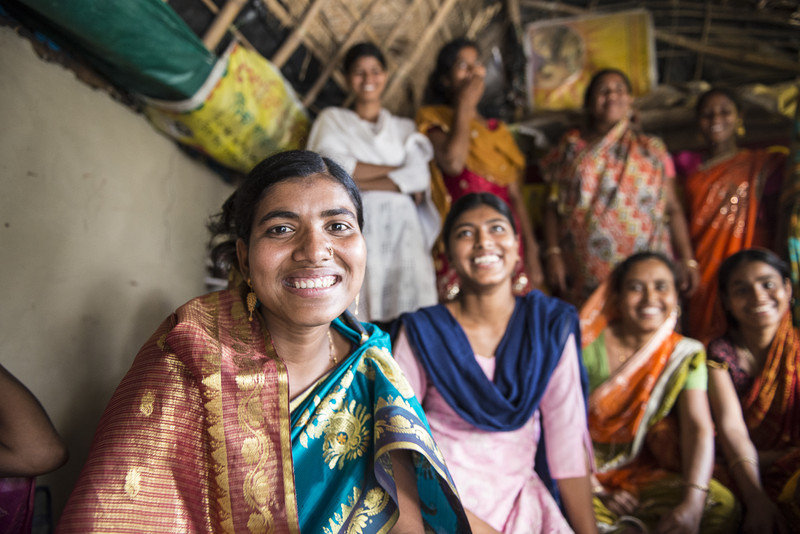
The special agency is addressing the issues of women across 20 states leading to a larger political and tangible change in their poor condition. From bondage labour to domestic violence and livelihood issues, the women’s parliament is seeking to solve some of the major issues that women face from various communities. Know more.
Monemma is a sprightly, outspoken young woman, who belongs to the Yanadi tribal community of Andhra Pradesh. There was impatience in her voice as she gave an update on the projects and campaigns she is leading on promoting the rights of girls and women in her native town of Vellore. Having spent her childhood as a bonded labourer, who was rescued only a few years back by a local human rights organisation, she is a woman in a hurry. According to her, “Too much time has been lost already. Women themselves are oblivious of their value and are mock spectators to the unfolding of their destinies. Even though I lost the Andhra Assembly election in 2009, by a narrow margin of 6,000 votes, I am committed to giving women a voice and unleashing their inner potential.”
She informed that, like her, nearly 25,000 families belonging to the Yanadi tribal community living in Nellore district are still under bondage situations. More than 12,000 acres of land belonging to them is in the hands of mighty local ‘zamindaars’ (land owners). There is absolutely no one to pick up the cudgels on behalf of these women and restore to them what is rightfully theirs.
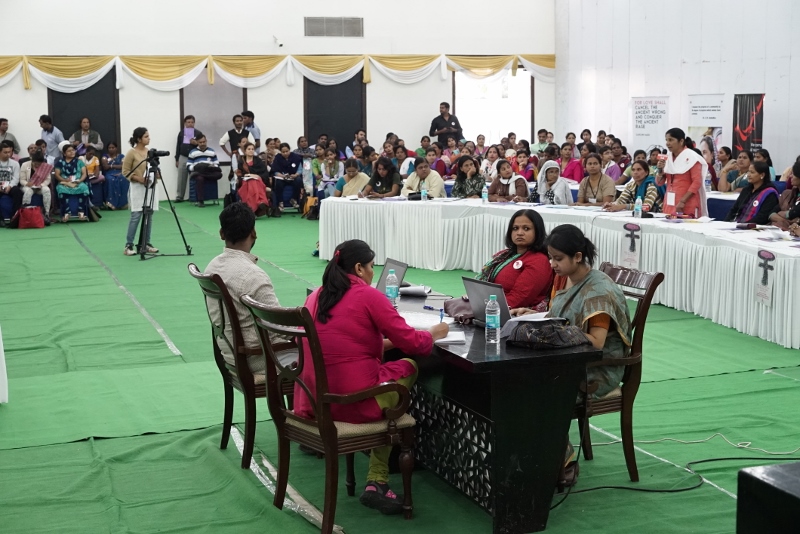
They continue to live a life of abject poverty, humiliation, exploitation and helplessness. As she spoke about her people and their problems, urging Revenue and Labour officials to immediately visit the location, take stock of the situation and initiate necessary steps of rescue and rehabilitation, there was a lot of passion, conviction and hope in her voice.
Monemma was one of 80 grassroots women activists from across India who brought to life a mock Women’s Parliament organised by ActionAid as part of its Beti Zindabad campaign. The campaign, which was launched in 2012, has worked with a clutch of women’s organisations from 64 districts in 20 states, resolving to give women’s empowerment a more physical and active voice, especially in a way that can make a strong political comment.
While the initial trigger for the campaign was the declining child sex ratio in the country, it has since evolved into a larger movement that looks at a range of issues faced by women and girls at various stages of the life cycle, taking into account their geographical and social contexts.
Trafficking and child marriage in West Bengal, acid attacks and domestic violence in Bihar, female infanticide in Haryana, rising sex violence in Maharashtra and skewed land distribution in Karnataka are some of the chronic conditions that women have been living with for generations. Campaigns and enactment of laws has brought about some awareness but change is yet to be seen.

The Women’s Parliament, the first of its kind in India, was one way of articulating these challenges. It was organised in Delhi, the seat of the country’s polity, to compel “real Parliamentarians” to sit up and take notice. While ‘morchas’ (rallies) and ‘bandhs’ (boycotts) have their own place in the turbulent landscape of social, cultural and political change, the mock Parliament, which turned out to be a resounding success, unleashed years of pent-up angst, as women activists-members used data, evidence, recent cases and their powerful oratory skills to present to the House a range of issues that impact them. Remarked an activist from Nagaland, “It is not as if the powers that be are not aware of what is going on. It is just not a priority. Women’s issues and their voices are, therefore, viewed as noisy clamouring, not urgent items on the national agenda that need redress and action.”
The unique Parliament presented an alternative vision of political participation where women’s voices are heard and given their due importance. This assumes relevance given the fact that women today account for just 11 per cent of the 543 members in the all-important Lok Sabha (Lower House). The proceedings were structured to mirror the actual Parliament, which incidentally is in session, complete with a government, opposition and Speaker. Noted feminist- activist Kamla Bhasin, who presided as the Speaker, said,
A range of issues were raised in this Parliament. From problems of brick kiln workers to cases of ostracising and branding women as witches – all of which is happening even seven decades after Independence. I am glad that this parliament has the consciousness to table some of these issues and provide an example of how a people’s parliament should be.
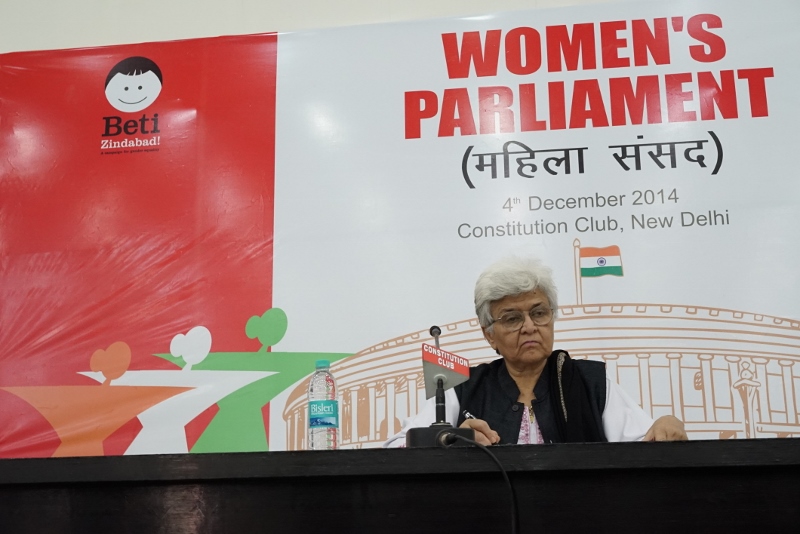
The Question Hour proved to be an important part of the proceedings, as several issues such as Dalit women’s access to land, equal property rights of women, women’spolitical participation, social security, disability issues, declining child sex ratio, transgender issues, gender-based discrimination, health and sanitation issues, wage inequality, workplace harassment, issues of minorities and tribal women and more, were raised through a total of 23 questions tabled.
Babita from Nalanda in Bihar drew attention to how in spite of land distribution taking place seven times in as many years, not one Dalit woman had so far benefitted from the Act. She also spoke about how nefarious groups with vested interests had ensured that alcohol shops in every village remain open till late but did not give importance to having regulated water supply. Alcohol had become the bane of their lives. She cited that in every village of 100 people, 40 women were single – either widowed or abandoned, largely due to drunken husbands.
From alcohol problems to farmers’ rights, several women were annoyed by the fact that though, traditionally, in any agrarian community, they do more work than the men they still do not command equivalent wages. Even government benefits are directed towards the male farmer, not even acknowledging the entity that is the woman farmer. On the health front, too, they were not happy with the prevailing reality.
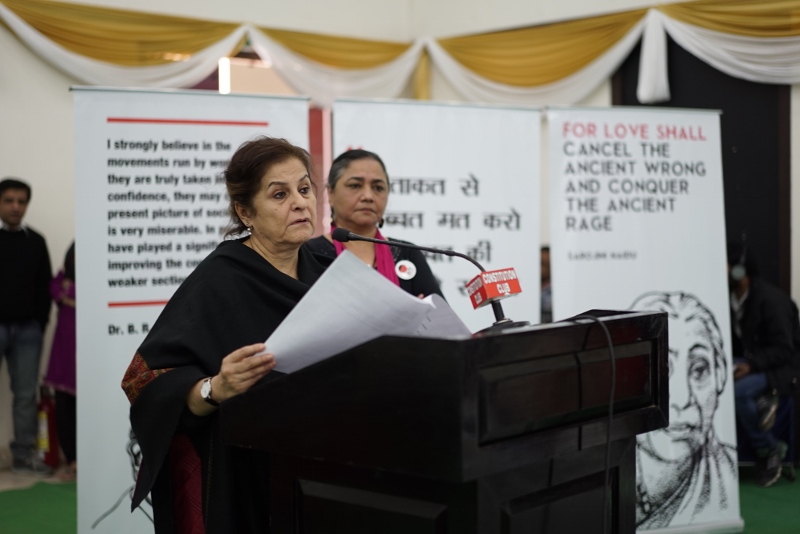
Where in the countryside, a public health facility is supposed to be functional every 10-12 kilometres, on ground, they are either not there or are in a pitiable condition. In Manipur, where crisis and strife have been a way of life, widows still find it hard to access their pensions. On the subject of rampant domestic violence, there was a lot of thumping on the tables, demonstrating anguish at how women are still being killed for reasons as trivial as there being no salt in a dish or too much sugar in the tea, by none other than their own husbands.
The women ‘parliamentarians’ demanded more effective monitoring mechanisms that could evaluate progress of laws that have been enacted and their enforcement, pushing up accountability of governments and the trust quotient wrested in them by women. A team of parliamentarians comprising D. Raja, Ali Anwar, N. Swamy and others was present at the mock Parliament in a show of support and encouragement.
What the Women’s Parliament essentially has done is to draw up a very articulate wish list through the 27 questions that raise issues that women face across the country. Over debate and discussion (read crossfire, in Parliamentary language), it has even come up with some plausible solutions.
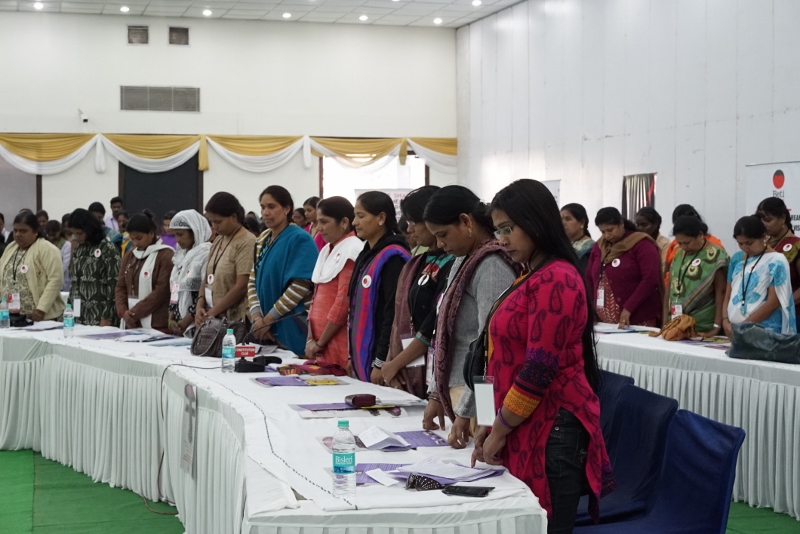
For instance, having Protection Officers for domestic violence cases in every state and demanding that this be an independent post and not a joint one. That the mock Women’s Parliament members meant business was clear to everyone. As Dr Syeda Hameed, former member of the Planning Commission, remarked,
“These women are not going to be easily placated and satisfied. We in the government have to become more responsive. I am going to push for some of the issues raised at this platform to be tabled in the Parliament’s ongoing Winter Session.”
The mock Parliament might have concluded but each of the women activists has gone back with a little more hope and a lot more promise.
Like this story? Or have something to share? Write to us: [email protected], or connect with us on Facebook and Twitter (@thebetterindia).

Similar Story
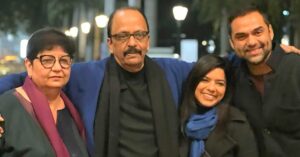
The Couple Behind ‘Trial by Fire’ & Their Long Battle for Justice After Uphaar Fire
Neelam and Shekhar Krishnamoorthy, the couple whose story has inspired Netflix’s Trial By Fire, lost their children in the Uphaar Cinema fire, and have been seeking justice for their children and other affected families ever since.
Read more >
If you found our stories insightful, informative, or even just enjoyable, we invite you to consider making a voluntary payment to support the work we do at The Better India. Your contribution helps us continue producing quality content that educates, inspires, and drives positive change.
Choose one of the payment options below for your contribution-
By paying for the stories you value, you directly contribute to sustaining our efforts focused on making a difference in the world. Together, let's ensure that impactful stories continue to be told and shared, enriching lives and communities alike.
Thank you for your support. Here are some frequently asked questions you might find helpful to know why you are contributing?


This story made me
-
97
-
121
-
89
-
167












